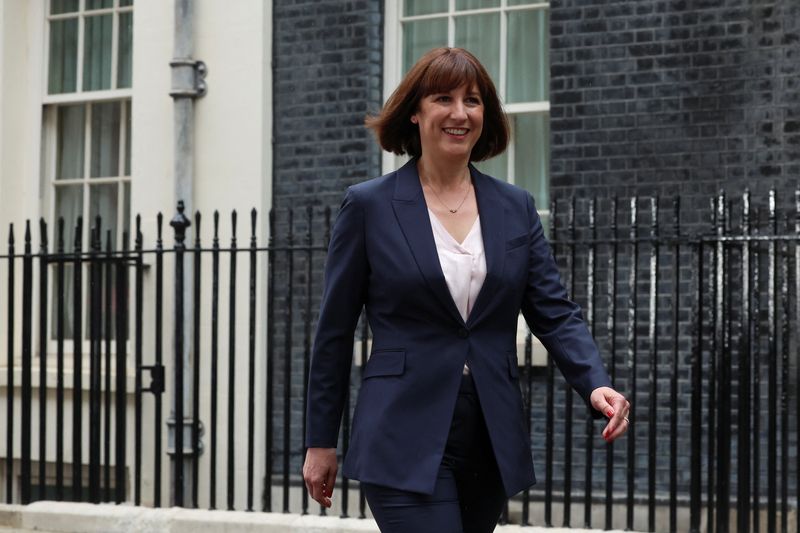PoundSterlingLIVE - Chancellor Rachel Reeves and Economic Secretary to the Treasury Tulip Siddiq visit Darwin Market in Lancashire. Treasury. Picture by Kirsty O'Connor / Treasury.
UK Employment Fell at Fastest Rate Since Financial Crisis as Reeves' Jobs Tax Bites.
Chancellor Rachel Reeves has sent a chill through the UK labour market, according to a new economic survey.
S&P Global's PMI survey for December provides firm evidence that the decision by Chancellor Rachel Reeves to increase taxes on wages is proving detrimental to the labour market.
The hike in National Insurance contributions and new staffing regulations have led to a marked pullback in hiring reports S&P Global, causing employment to fall at the fastest rate since the 2009 global financial crisis (excluding the pandemic).
December data indicated a fall in total staffing numbers for the third month in a row.
S&P also reports the rate of job shedding across the private sector economy was the fastest for almost four years.
Service providers recorded a particularly steep decline in employment at the end of 2024, which the survey reveals was mainly linked to the non-replacement of voluntary leavers in response to rising employment costs.
Some firms also noted that forthcoming increases in employers’ National Insurance contributions had encouraged cutbacks to working hours and longer-term efforts to restructure workforces. Businesses are responding to rising employment costs by reducing working hours and restructuring their workforces.
Chancellor Rachel Reeves introduced the largest single increase in employer NI contributions in years at the October budget. From April 2025, the threshold on employee earnings at which NI applies will drop from £9,100 to £5,000. The NI rate will increase from 13.8% to 15%.
Service providers, in particular, cite the increased National Insurance contributions as a reason for adopting a more cautious approach to business expansion plans. They also point to the need to raise prices to alleviate margin pressures from higher salary payments.
In the wake of the budget, businesses and economists have warned that Reeves' budget risked undermining the labour market. Although the new rules are only introduced in April 2025, survey data suggests firms are acting early to mitigate the impact.
In addition, the Labour government is rolling out new laws to bolster the rights of employees, which businesses say will make hiring staff more complex, costly and unattractive.
"Firms are responding to the increase in National Insurance contributions and new regulations around staffing with a marked pull-back in hiring, causing employment to fall in December at the fastest rate since the global financial crisis in 2009 if the pandemic is excluded," says Chris Williamson, Chief Business Economist at S&P Global Market Intelligence.
An original version of this article can be viewed at Pound Sterling Live
